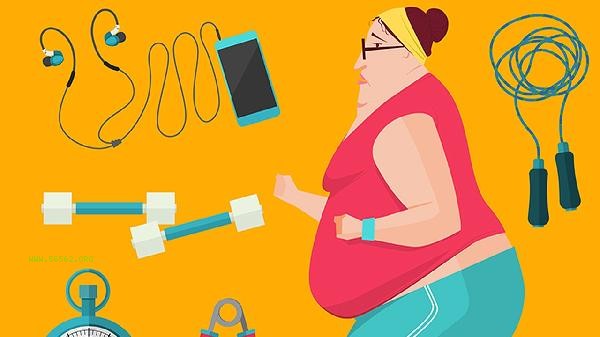Eating one meal a day without exercise is often difficult to achieve healthy weight loss results, as it may lead to short-term weight loss but can easily rebound and damage health. Long term single diet patterns can lead to a decrease in basal metabolic rate, muscle loss, and nutritional imbalance, while lack of exercise further reduces calorie expenditure.

Relying solely on extreme dieting may cause the body to enter a state of hunger, automatically reducing energy expenditure to sustain life activities, resulting in a decrease in fat breakdown efficiency. Muscle tissue gradually loses due to a lack of protein intake and exercise stimulation, and the basal metabolic rate continues to decrease. After returning to a normal diet, weight will quickly increase. Long term insufficient nutrient intake may lead to problems such as hypoglycemia, gastrointestinal dysfunction, endocrine disorders, etc. Women may experience menstrual disorders or amenorrhea.

A very small number of individuals with a large body weight may adopt intermittent fasting combined with nutritional reinforcement under the supervision of a doctor, but strict monitoring of various indicators is required. Ordinary people who try to eat one meal a day are prone to experiencing low blood sugar reactions such as dizziness, fatigue, and decreased attention. Some people may overeat during a single meal due to excessive hunger, and their actual calorie intake may exceed their daily needs.

Healthy weight loss requires ensuring daily basic nutrient intake and creating a reasonable calorie gap. It is recommended to consume no less than 1200 calories per day and include high-quality protein, complex carbohydrates, and healthy fats. Moderate aerobic and strength training every week can help maintain muscle mass and increase resting metabolic rate. One can adopt a small and frequent meal pattern to stabilize blood sugar levels, and pair it with high nutrient dense foods such as whole grains, lean meat, and dark vegetables. If there are metabolic diseases or abnormal weight fluctuations, it is necessary to consult a nutritionist or endocrinologist in a timely manner.







Comments (0)
Leave a Comment
No comments yet
Be the first to share your thoughts!